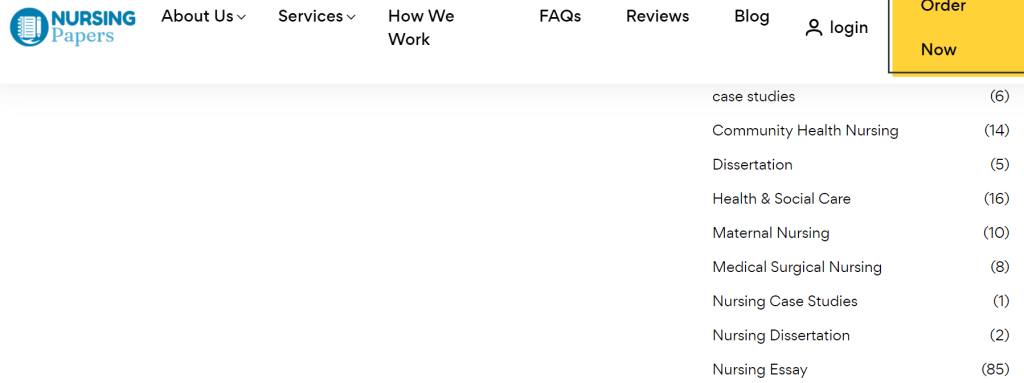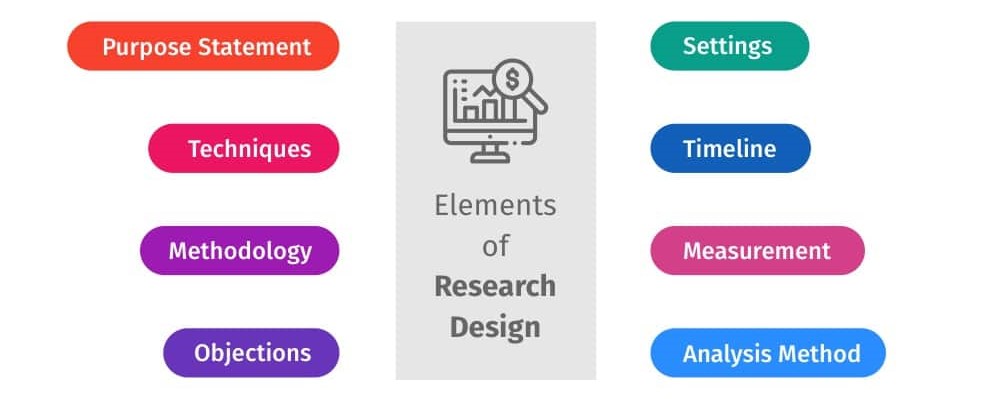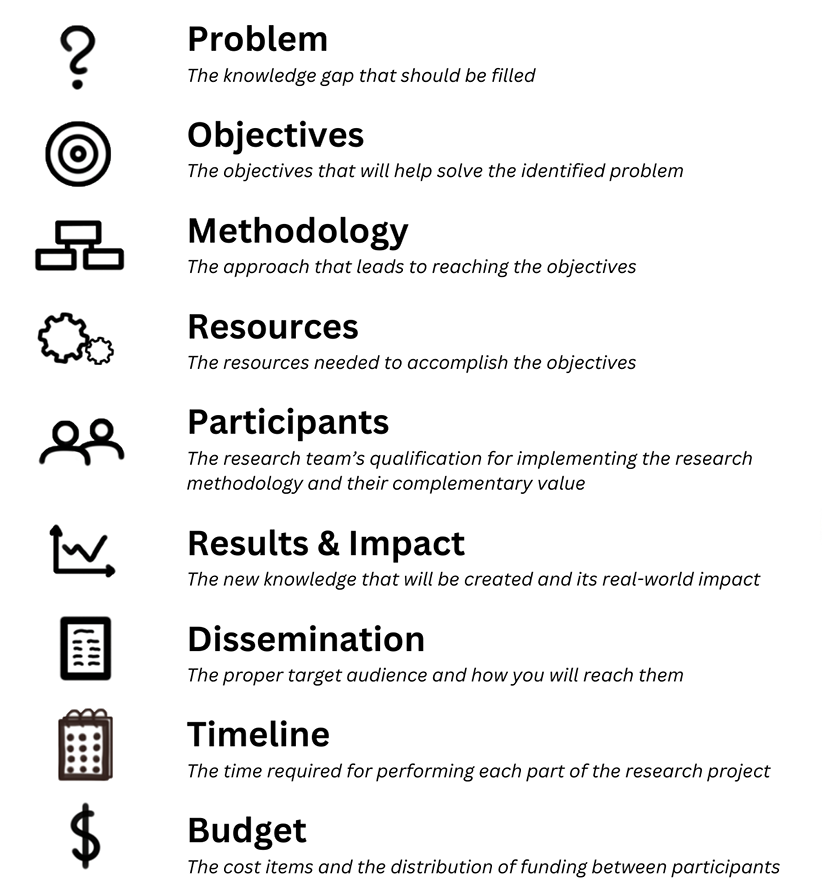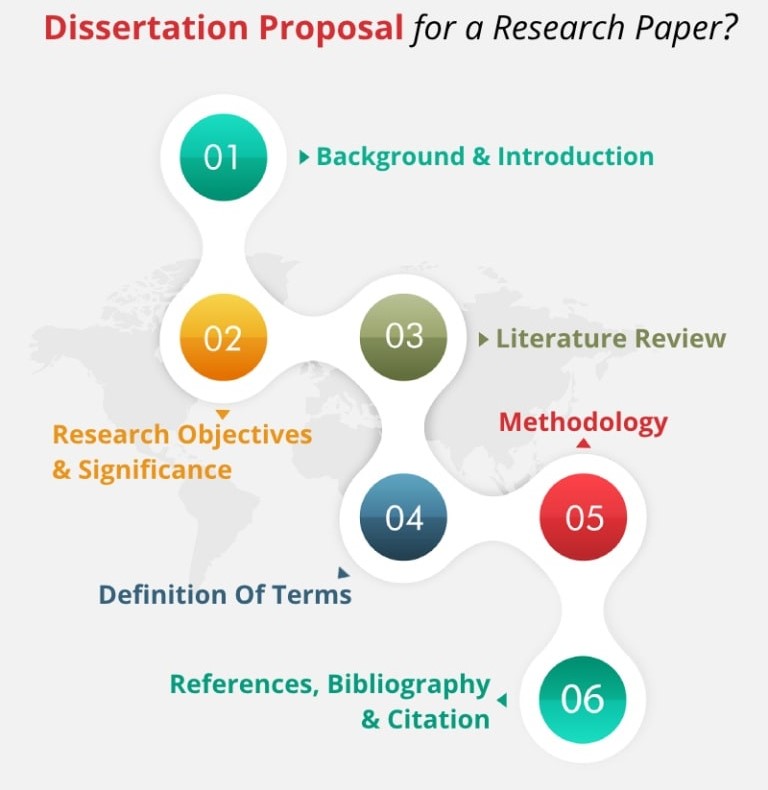
Table of Contents
Embarking on a nursing dissertation journey is a significant step in your academic career. It represents the culmination of years of study, dedication, and clinical experience, culminating in a substantial research project that contributes original knowledge to the field. The foundation of this journey lies in the nursing dissertation proposal, a crucial document that outlines your research plan and seeks approval from your committee.
Crafting a compelling and convincing proposal is essential for securing the necessary support and resources to undertake your research.
This article aims to provide comprehensive guidelines for crafting a winning nursing dissertation proposal, empowering you to clearly articulate your research vision and gain the necessary approval for your project.
Steps to Crafting a Nursing Dissertation Proposal
I. Defining the Research Problem and Setting the Stage:
The nursing dissertation proposal is not simply a dry recitation of research methods; it’s a narrative that convinces your committee of the importance and feasibility of your research. This narrative begins with a compelling research problem, the driving force behind your investigation.
A. Identifying a Relevant and Significant Research Problem:
The first step involves identifying a research problem that is both relevant to the field of nursing and holds significant implications for practice, policy, or theory. This problem should resonate with your own clinical experiences, interests, and areas of expertise.
B. Conducting a Thorough Literature Review:
A comprehensive literature review is the cornerstone of your nursing dissertation proposal. It demonstrates your understanding of existing knowledge on the topic, identifies gaps in the research, and establishes the rationale for your proposed study.
1. Define your search terms: Use relevant keywords related to your research problem, ensuring a focused search.
2. Explore diverse databases: Utilize multiple databases, including PubMed, Nursing Papers, CINAHL, PsycINFO, and ProQuest, to access a wide range of research literature.

3. Synthesize findings: Organize your findings thematically, highlighting key concepts, conflicting perspectives, and existing gaps in knowledge.
C. Formulating Clear Research Questions:
Your nursing dissertation proposal must present clear and concise research questions that guide your study. These questions should be specific, measurable, achievable, relevant, and time-bound (SMART).
1. Focus on a single research question: Avoid ambiguity by concentrating on a central research question that drives your study.
2. Consider sub-questions: Depending on the complexity of your research question, you may include specific sub-questions to address different facets of the problem.
Examples of Compelling Research Questions for a Nursing Dissertation Proposal
Example 1: (Quantitative)
Research Question: What is the impact of a nurse-led, patient-centered education program on medication adherence rates among patients with type 2 diabetes compared to standard care?
Why it’s well-written:
- Specific and focused: Clearly defines the population (patients with type 2 diabetes), intervention (nurse-led education program), and outcome (medication adherence rates).
- Measurable: Adherence rates can be objectively measured.
- Achievable: The study can be conducted within a reasonable timeframe and scope.
- Relevant: Addresses a real-world issue of importance in nursing practice.
- Time-bound: The study should be completed within a defined time frame.
Example 2: (Qualitative)
Research Question: How do registered nurses perceive and navigate ethical dilemmas related to end-of-life care in the intensive care unit?
Why it’s well-written:
- Open-ended and exploratory: Allows for a deep understanding of the lived experiences of nurses.
- Focuses on a specific population: Registered nurses in the ICU setting.
- Identifies a significant topic: Ethical dilemmas in end-of-life care.
- Uses appropriate language: “Perceive” and “navigate” suggest the researchers aim to explore the subjective experiences of the nurses.
- Addresses a real-world issue: Ethical dilemmas in end-of-life care are a crucial concern in nursing practice.
Remember, a strong research question is the foundation of a successful dissertation proposal. Take time to refine and polish your questions to ensure they are clear, focused, and impactful.
II. Developing the Research Design and Methodology:
After establishing the foundation of your nursing dissertation proposal with a well-defined research problem and compelling research questions, you must meticulously outline the research design and methodology.
A. Choosing the Appropriate Research Design:
The research design provides the blueprint for your study, outlining the strategy for collecting and analyzing data.

1. Quantitative Research: Choose a quantitative design for objective measurements and statistical analysis, such as experimental, quasi-experimental, or correlational designs.
2. Qualitative Research: Opt for a qualitative design for in-depth exploration of complex phenomena and individual perspectives, including phenomenology, grounded theory, or ethnography.
3. Mixed Methods Research: Combine quantitative and qualitative approaches to gain a comprehensive understanding of the research problem.
B. Specifying the Participants and Sampling:
Define the characteristics of your study participants and the sampling method used to select them.
1. Inclusion and Exclusion Criteria: Clearly state the criteria used to select participants and exclude individuals who do not meet the study requirements.
2. Sampling Technique: Explain the specific sampling method chosen for your study (e.g., random sampling, purposive sampling, convenience sampling) and justify its relevance to your research question.
C. Describing Data Collection Methods:
Detail the methods used to collect data, ensuring reliability, validity, and ethical considerations.
1. Quantitative Data: Describe the instruments used to collect numerical data, such as questionnaires, surveys, or physiological measurements.
2. Qualitative Data: Outline the techniques used to collect qualitative data, such as interviews, focus groups, or observational data.
3. Data Collection Procedures: Clearly outline the steps involved in data collection, including participant recruitment, data gathering protocols, and data storage methods.
D. Explaining Data Analysis Techniques:
Outline the statistical or analytical methods used to analyze the collected data.
1. Quantitative Data Analysis: Describe the statistical tests and software used to analyze quantitative data, ensuring appropriateness and applicability.
2. Qualitative Data Analysis: Explain the methods used to analyze qualitative data, such as thematic analysis, content analysis, or discourse analysis.
3. Data Analysis Plan: Develop a comprehensive plan for analyzing the collected data, specifying the steps involved and anticipated outcomes.

III. Addressing Ethical Considerations and Potential Limitations:
A strong nursing dissertation proposal acknowledges and addresses ethical considerations and potential limitations that may impact your research.
A. Ethical Approval and Informed Consent:
Describe the ethical review process and the steps taken to ensure the protection of human subjects.
1. Institutional Review Board (IRB) Review: Outline the process for obtaining IRB approval for your research, including the submission of a detailed protocol.
2. Informed Consent: Detail the procedures for obtaining informed consent from participants, ensuring their understanding of the study’s purpose, risks, and benefits.
B. Addressing Potential Limitations:
Acknowledge any potential limitations of your study, demonstrating a critical understanding of the research process.
1. Sample Size: Discuss the potential impact of a small sample size on the generalizability of your findings.
2. Data Collection Method: Recognize any potential biases or limitations associated with your chosen data collection methods.
3. Study Setting: Acknowledge the potential influence of the study setting on the generalizability of findings.
IV. Anticipating Potential Implications and Contributions:
Your nursing dissertation proposal should clearly articulate the potential implications and contributions of your research.
A. Expected Outcomes and Findings:
Describe the anticipated outcomes of your study, including potential findings and their significance to nursing practice, policy, or theory.
1. Clinical Practice: Explain how your research findings could potentially impact nursing practice, leading to improved care delivery or patient outcomes.
2. Policy Development: Discuss how your findings could inform policy decisions related to healthcare delivery, resource allocation, or patient safety.
3. Theory Building: Explore how your research could contribute to the development or refinement of nursing theory.
B. Dissemination Plan:
Outline the planned dissemination strategies to share your research findings with the broader nursing community and beyond.
1. Academic Publications: Describe plans for publishing your research findings in peer-reviewed nursing journals.
2. Conference Presentations: Detail intentions to present your research at relevant nursing conferences.
3. Professional Networks: Explain strategies for sharing your findings with professional organizations and networks.
V. Crafting a Compelling Proposal:
A well-written nursing dissertation proposal should be compelling, clear, and concise.
A. Structure and Organization:
Organize your nursing dissertation proposal in a logical and sequential manner, ensuring clarity and readability.

1. Introduction: Engage the reader with a compelling introduction that establishes the research problem, its significance, and the overarching aim of your study.
2. Literature Review: Provide a comprehensive overview of existing research, highlighting key findings, gaps, and the rationale for your proposed study.
3. Methodology: Present a detailed description of your research design, participants, data collection methods, and data analysis techniques.
4. Ethical Considerations: Address ethical issues related to your research, including IRB approval and informed consent.
5. Limitations: Acknowledge potential limitations of your study and their implications.
6. Implications and Contributions: Articulate the potential implications of your research for nursing practice, policy, and theory.
7. Dissemination Plan: Outline your strategies for disseminating your research findings.
8. References: Include a comprehensive list of references cited in your proposal.
B. Writing Style and Language:
Employ clear and concise language, avoiding jargon or overly technical terms.
1. Active Voice: Use active voice to enhance clarity and conciseness.
2. Concise Language: Avoid redundancy and unnecessary words, focusing on conveying information efficiently.
3. Professional Tone: Maintain a professional tone throughout the proposal, reflecting your commitment to rigorous scholarship.
C. Proofreading and Editing:
Ensure the accuracy of your proposal by carefully proofreading and editing for any grammatical errors, typos, or inconsistencies.
1. Review and Revise: Seek feedback from mentors, colleagues, or peers to enhance the clarity, logic, and persuasiveness of your proposal.
2. Professional Editing: Consider professional editing services to ensure a polished and error-free proposal.
VI. Seeking Guidance and Support:
As you embark on the journey of crafting your nursing dissertation proposal, remember that you are not alone. Seek guidance and support from mentors, advisors, and colleagues.
- Faculty Advisor: Engage your faculty advisor regularly, seeking their expertise and feedback on your research plans.
B. Dissertation Committee: Involve your dissertation committee members in the development of your proposal, gaining their insights and approval.
C. Dissertation Writing Groups: Join dissertation writing groups to connect with other students and gain support, motivation, and feedback.
Common Pitfalls and Solutions in Nursing Dissertation Proposals
Writing a nursing dissertation proposal is a crucial step in your academic journey. It outlines your research project and serves as a blueprint for your future work. However, it’s also a common area for pitfalls that can derail your progress. Here are some common pitfalls and how to avoid them:
1. Lack of Clear Research Question: A well-defined research question is the cornerstone of any nursing dissertation proposal. Without a clear question, your research will lack direction and focus.
Solution:
- Spend time thoroughly reviewing the literature and identifying gaps in knowledge.
- Craft a research question that is specific, measurable, achievable, relevant, and time-bound (SMART).
- Consider seeking feedback from your advisor or other faculty members to refine your question.
2. Inadequate Literature Review: A comprehensive and critical literature review is essential for demonstrating your understanding of the existing knowledge base in your chosen area. A weak nursing dissertation proposal with an insufficient literature review will be rejected.
Solution:
- Go beyond a simple summary of existing research.
- Analyze the findings, identifying inconsistencies and gaps.
- Discuss how your research will contribute to the field and address existing limitations.
3. Unrealistic Research Methodology: The research methodology section of your nursing dissertation proposal describes how you will gather and analyze data. This section must be feasible and aligned with your research question.
Solution:
- Choose an appropriate research design and data collection methods.
- Be realistic about the time, resources, and expertise needed to complete your research.
- Consider consulting with a research expert to ensure your methodology is sound.
4. Weak Significance of Findings: You must convincingly demonstrate the potential impact of your research in your nursing dissertation proposal. A lack of clear implications for nursing practice or policy will weaken your proposal.
Solution:
- Clearly articulate how your findings will advance knowledge and improve patient care.
- Discuss the potential implications for nursing practice, policy, or education.
- Consider highlighting the practical applications of your research findings.
5. Insufficient Ethical Considerations: Ethical considerations are crucial for any research study involving human subjects. Your nursing dissertation proposal must address these considerations thoroughly.
Solution:
- Clearly describe the potential risks and benefits to participants.
- Outline the measures you will take to protect participant confidentiality and privacy.
- Obtain informed consent from all participants before conducting your research.
Avoiding these common pitfalls and following the tips outlined above will enable you to develop a strong nursing dissertation proposal that lays the foundation for a successful research project. Remember to seek feedback from your advisor and other faculty members throughout the process.
Frequently Asked Questions about Nursing Dissertation Proposal
1. What is the purpose of a nursing dissertation proposal?
The nursing dissertation proposal serves as a roadmap for your research. It outlines your research question, methodology, and expected outcomes. It’s crucial for gaining approval from your committee and securing funding for your research.
2. What are the essential components of a nursing dissertation proposal?
A strong nursing dissertation proposal should include:
- Introduction: Briefly introduce the research problem and its significance.
- Literature Review: Analyze existing research on the topic and highlight gaps in knowledge.
- Research Question: Clearly state the central question your research will address.
- Methodology: Describe the research design, data collection methods, and data analysis techniques.
- Ethical Considerations: Address potential ethical issues and ensure your study adheres to ethical guidelines.
- Timeline: Outline the expected duration of each phase of the research process.
- References: Cite all sources used in your nursing dissertation proposal.
3. How do I choose a relevant and impactful topic for my nursing dissertation proposal?
The ideal nursing dissertation proposal topic should be relevant to current nursing practice, address a significant gap in knowledge, and have potential for real-world application. Consider your interests, current nursing trends, and your access to potential data sources.
4. How long should a nursing dissertation proposal be?
The length of your nursing dissertation proposal will vary depending on the specific requirements of your institution. However, it’s typically around 15-25 pages, including all sections mentioned above.
5. What are some common mistakes to avoid in my nursing dissertation proposal?
- Lack of clarity in research question or methodology.
- Insufficient literature review or weak justification for the study.
- Poor organization or writing style.
- Insufficient attention to ethical considerations.
6. How can I improve my nursing dissertation proposal?
- Seek feedback from your advisor and peers.
- Be concise and clear in your writing.
- Ensure proper citations and formatting.
- Proofread carefully for any errors.
The nursing dissertation proposal is the first step in a significant academic journey. By carefully planning and crafting your proposal, you set yourself up for success in your dissertation research.

Final Thoughts
Crafting a winning nursing dissertation proposal is a challenging but rewarding endeavor. By meticulously defining the research problem, outlining the research design and methodology, addressing ethical considerations, and articulating potential implications and contributions, you can create a compelling document that secures the necessary support and resources for your research journey.
Remember, your nursing dissertation proposal is not just a document; it is a testament to your commitment to contributing original knowledge to the field of nursing. With careful planning, thorough research, and a strong narrative, you can craft a proposal that sets the stage for a successful and impactful dissertation journey.
Get Professional Nursing Dissertation Writing Service
Are you having difficulties in crafting a nursing dissertation proposal? Then, order an authentic and customized nursing dissertation proposal from PhD Nurse Writer. We can deliver an original and compelling dissertation proposal for academic success. Besides, our writers can also assist you with writing nursing research papers, essays and case studies.







